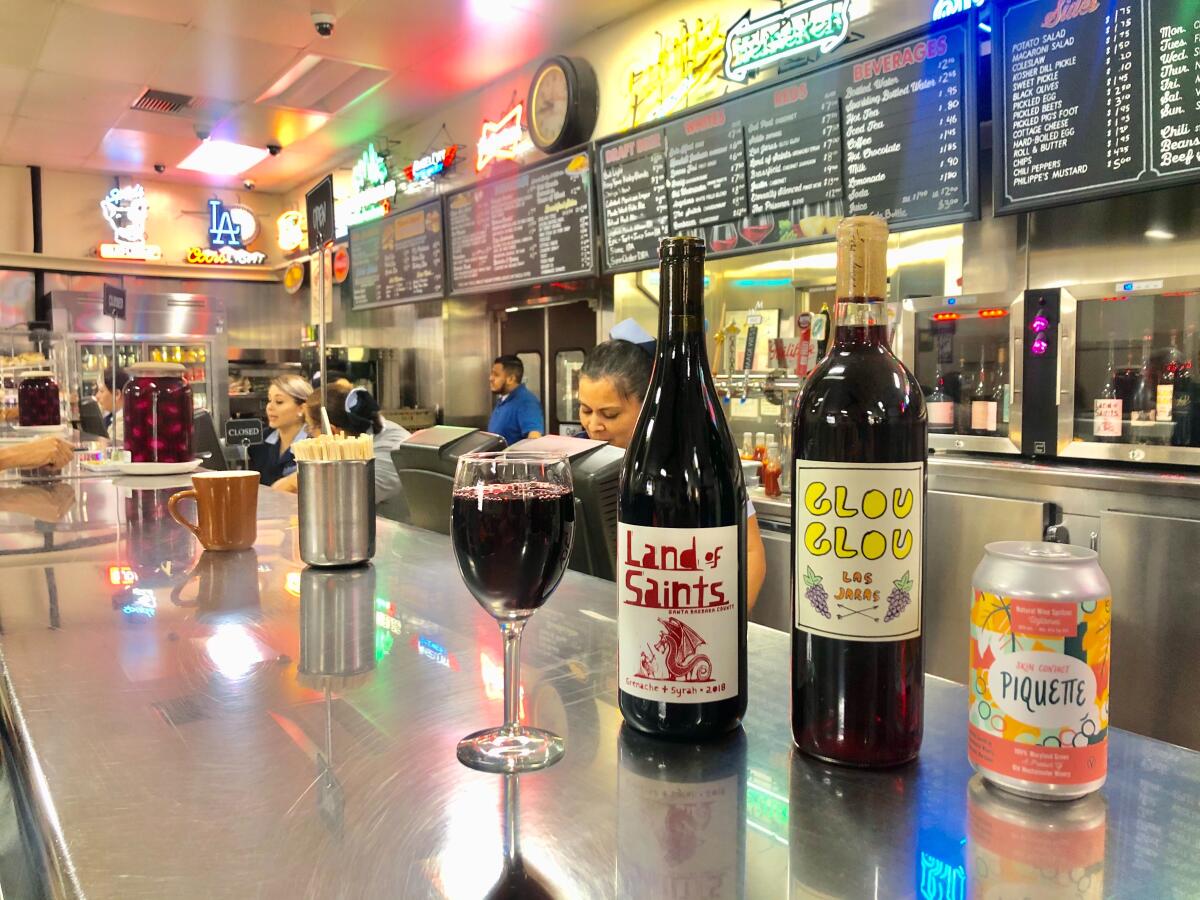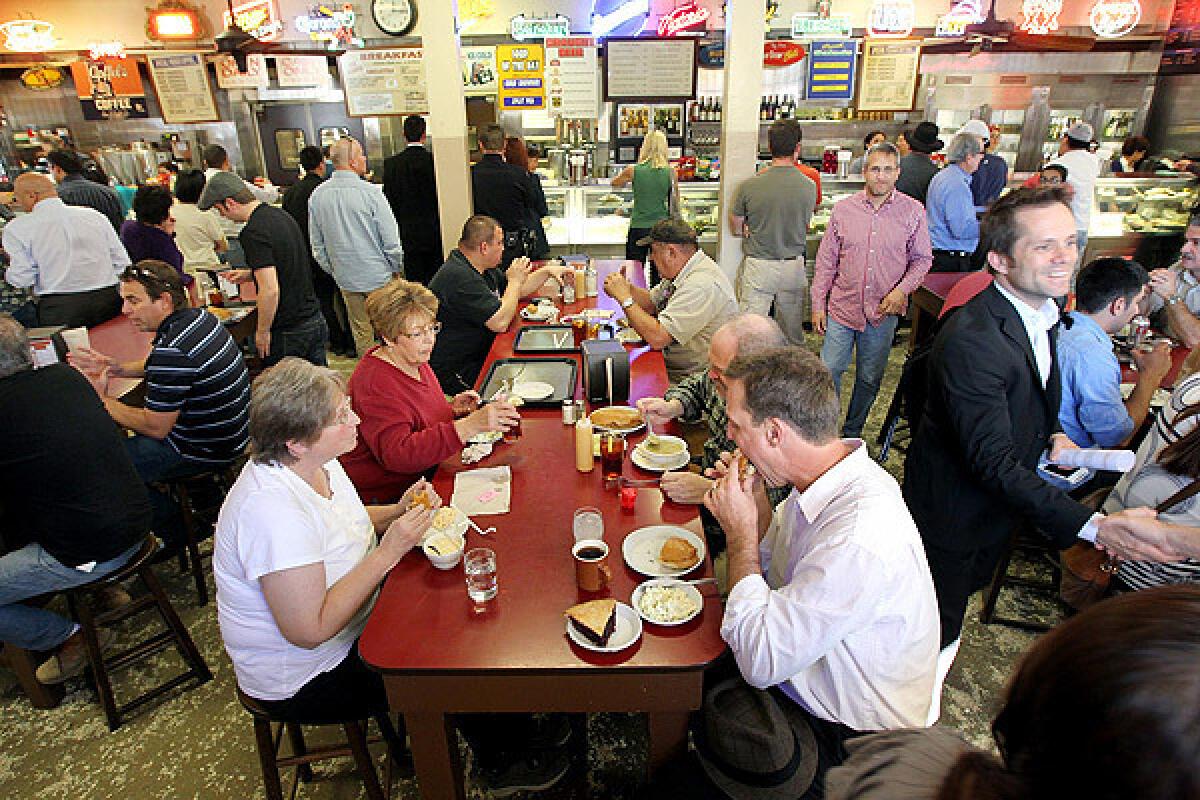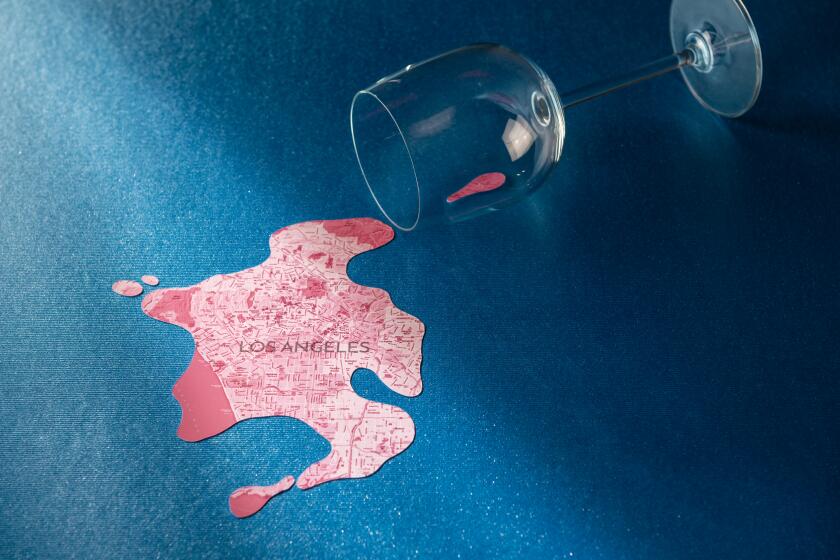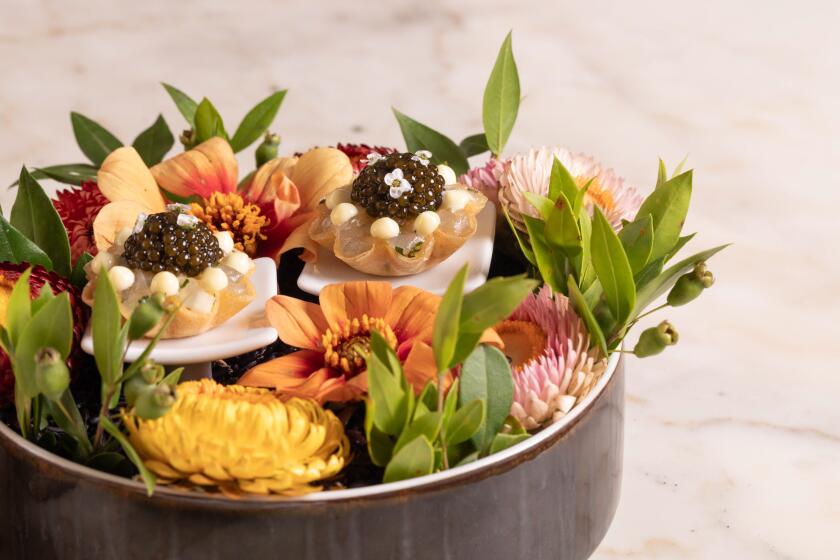Natural wine at Philippe’s? L.A.’s French dip institution has a hip new beverage list

What is the right beverage to accompany a jus-soaked beef dip at Philippe’s the Original? Iced tea? Lemonade? Black coffee?
Ask Andrew Binder, managing partner and fourth-generation owner, and he’s likely to recommend a local skin-fermented orange wine or a juicy Grenache-Syrah blend from Santa Barbara.
It’s true. Philippe’s — the blue-collar, sawdust-strewn cafeteria and French dip progenitor that has defined a certain kind of downtown dining since 1908 — has gotten into natural wine.

Above the order counter, where uniformed waitresses carve sandwich meats to order and scoop salads onto paper plates, a board lists 16 wines by the glass. The list might include a fizzy low-alcohol wine spritzer from Maryland or an organically grown Malbec from Lo-Fi winery in Santa Ynez.
Binder, 32, said he began adding natural wines, most of them produced in California, to the menu at Philippe’s in the last year or two, due in part to changes in his own drinking habits.
Critic Bill Addison recommends L.A. wine bars and restaurants with excellent wine lists
“I went to hospitality school in Colorado, so from that I got into breweries and became a big craft beer guy,” Binder said. “From sour beers I started gravitating more toward wine, especially wines that were lower alcohol, refreshing and easy-drinking. It became sort of a passion project to start offering those at the restaurant.”
Binder’s initial picks were influenced by trips to Silver Lake Wines, Psychic Wines and Domaine L.A. Eventually he connected with Revel Wines, a natural wine distributor promoting a new generation of California winemakers. “Four or five of the wines we offer now come from them, and I hope to add more soon.”
Though changes to the list are recent, Philippe’s relationship with wine is not. During the 1920s, the restaurant sold house wine on tap, consumed by late-night revelers and hourly workers with equal gusto, often paired with drinking snacks like blood sausage (no longer on the menu) and pickled pig’s foot (still available).
During the late ’80s, Richard Binder, Andrew’s father, revamped the wine list to reflect his interest in bold Napa Valley cabernets, selling bottles from high-caliber wineries like Silver Oak, Plumpjack and Duckhorn for bargain-basement prices that were cheaper that most liquor stores at the time.
“He was amused by the idea of someone drinking a nice bottle of wine with a $5 French dip, so he kept the prices as low as possible,” Binder said. “It wasn’t until about five years ago that he mostly stopped drinking and gave me full control of the list.”
For his part, Binder has focused on keeping his new slate of wines as economical as possible, often securing special by-the-glass pricing from distributors. A generous 5-ounce pour — “We measure a finger’s width from the top of the glass,” he said — of Las Jaras Glou Glou, a red blend from Mendocino County that retails for $27 a bottle, goes for $7 at Philippe’s. Most restaurants would charge twice as much.
“We’re famous for our 50-cent cups of coffee,” Binder said, noting that most selections are priced between $7 and $9 a glass. “It’s less about making money and more about keeping things interesting while staying true to traditions.”
At the moment, Philippe’s wines are a mix of Binder’s selections and a handful of top-selling wines that he refers to as “workhorses” — labels like Kendall-Jackson and Justin — that are available at most supermarkets and popular with longtime customers.
The 60-year-old retiree who comes to Philippe’s each week for a turkey dip and a glass of Chardonnay might not be interested in altering her order, but if Binder can convince her to taste Angeleno Wine Co.’s White Field Blend, he sees it as a success. He’s even begun hosting informal wine tastings with staff, aiming to enlist them as fellow evangelists.
“Making changes here takes a long time,” said Binder with a laugh. “But when there’s a customer in line that’s surprised we have a wine they love, that’s pretty cool to see.”
More to Read
Eat your way across L.A.
Get our weekly Tasting Notes newsletter for reviews, news and more.
You may occasionally receive promotional content from the Los Angeles Times.










